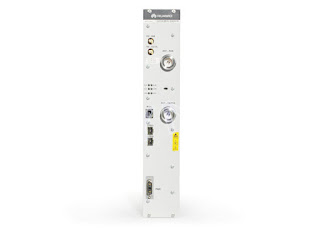Base Band Unit BBU
Baseband Unit (BBU)
Baseband refers to the original frequency range of a transmission signal before it is modulated. Baseband can also refer to a type of data transmission in which digital or analog data is sent over a single non-multiplexed channel.
A baseband unit (BBU) is a unit that processes baseband in telecomm systems. A typical wireless telecom station consists of the baseband processing unit and the RF processing unit (remote radio unit - RRU). The baseband unit is placed in the equipment room and connected with RRU via optical fiber. The BBU is responsible for communication through the physical interface. A BBU has the following characteristics: modular design, small size, low power consumption and can be easily deployed.
A BBU in a cellular telephone cell site is comprised of a digital signal processor to process forward voice signals for transmission to a mobile unit and to process reverse voice signals received from the mobile unit. The digital signal processor also serves to produce a first supervisory audio tone (SAT) for transmission to the mobile unit by generating successive digital SAT samples which are decoded into a continuous tone. Finally, the digital signal processor detects the presence of a second SAT generated by the mobile unit by sampling and processing successive samples of the second SAT and measuring the power.




Comments
Post a Comment